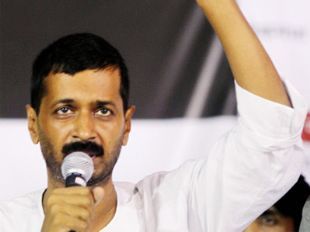
Supreme Court Rebukes CBI for ‘Unjustified’ Arrest of Arvind Kejriwal, Grants Bail
In a pivotal ruling, the Supreme Court of India granted Delhi Chief Minister Arvind Kejriwal bail in a case linked to the Delhi liquor policy scam. However, the judgment was not just about bail; it also carried significant rebukes for the Central Bureau of Investigation (CBI), questioning its timing and motivation behind arresting Kejriwal. The dissenting remarks from Justice Ujjal Bhuyan particularly captured attention, adding a sharp critique on how investigative agencies operate in politically sensitive cases.
Background of the Case
The Delhi liquor policy scam has been a highly controversial issue, with several leaders from the Aam Aadmi Party (AAP) being investigated. The central agencies—the Enforcement Directorate (ED) and the CBI—launched investigations into alleged financial irregularities and corruption linked to the liquor policy. Arvind Kejriwal, the chief architect of the AAP government, became embroiled in the case after ED’s claims suggested money laundering activities tied to the policy.
Kejriwal was first arrested by the ED in March 2024, but the CBI later followed suit, arresting him on June 26. This arrest happened just days after Kejriwal had secured bail in the ED’s money laundering case, leading to a wave of criticism. The AAP, alongside many political observers, claimed that the arrest was politically motivated, designed to keep Kejriwal in jail despite his impending release.
The Supreme Court’s Verdict
On September 13, 2024, the Supreme Court delivered its much-anticipated decision on Kejriwal’s bail plea. The two-judge bench, led by Justices Surya Kant and Ujjal Bhuyan, unanimously granted bail but expressed divergent opinions regarding the CBI’s conduct in arresting Kejriwal.
Justice Bhuyan, in particular, did not mince words when he described Kejriwal’s arrest by the CBI as an apparent effort to “frustrate” the bail he had already secured in the ED case. According to Bhuyan, the arrest seemed to be timed in a way that raised serious concerns about the agency’s intent. He pointed out that the CBI had been investigating the case for nearly 22 months, but had chosen to arrest the Delhi Chief Minister only after his bail in the ED case was finalized. Such actions, Justice Bhuyan argued, could be perceived as manipulative, further damaging the credibility of the CBI.
The “Caged Parrot” Analogy Revived
In a significant throwback, Justice Bhuyan invoked the infamous “caged parrot” analogy, which the Supreme Court had used over a decade ago in the coal-block allocation case to criticize the CBI. The analogy refers to the agency’s lack of independence, suggesting it often functions under political pressure. Bhuyan underscored that in a democratic setup, an investigative body like the CBI should be “above suspicion” and operate freely from political influence.
“The CBI must not function like a caged parrot, but should be seen as an uncaged parrot, like Caesar’s wife, above suspicion,” Bhuyan remarked, in one of the sharpest criticisms of the agency’s functioning in recent years.
Differing Views Within the Bench
While Justice Bhuyan’s remarks garnered attention for their critical tone, Justice Surya Kant, the other judge on the bench, maintained that the arrest, although legally valid, had led to a prolonged deprivation of liberty. He noted that prolonged incarceration without a trial constitutes an infringement of personal liberty, a principle long enshrined in Indian law. Justice Kant agreed that bail is the norm and jail the exception, especially when the trial is delayed or when there’s no substantial risk of the accused interfering with the investigation.
Implications of the Bail
Kejriwal’s bail has important political ramifications, not only for the AAP but also for the broader political spectrum in India. His release comes at a time when the AAP is eyeing key electoral contests in Haryana and Delhi, positioning itself as a formidable opponent to the Bharatiya Janata Party (BJP) and its allies. With his return to active politics, Kejriwal’s morale and political standing within the AAP are expected to strengthen, as indicated by his declaration that his “morale has grown 100 times” after walking out of jail.
On a legal front, the case also puts the spotlight back on how central agencies like the ED and CBI are used in high-profile political cases. Critics argue that these agencies are often misused to target opposition leaders, a charge that has intensified in recent years. Senior AAP leader Manish Sisodia, himself implicated in the same liquor policy case, stated that the Supreme Court’s remarks were a “tight slap” on the face of the BJP, accusing it of using these agencies as political tools.
The Road Ahead
While Kejriwal’s release is undoubtedly a victory for the AAP, the legal battles are far from over. The ED and CBI cases are still ongoing, and the AAP’s legal team will continue to fight the corruption charges in court. The political implications, however, will be felt in the coming months, as the party looks to consolidate its position both in Delhi and on the national stage.
In sum, the Supreme Court’s decision to grant bail while rebuking the CBI has reignited a broader debate about the independence of investigative agencies in India. Kejriwal’s release is seen as a political win, but it also raises important questions about the functioning of the country’s law enforcement institutions.
Conclusion
The Supreme Court’s ruling in favor of Arvind Kejriwal’s bail not only restores his freedom but also shines a critical light on the role and timing of the CBI’s actions. Justice Ujjal Bhuyan’s sharp critique of the agency’s motives and reference to the “caged parrot” analogy has underscored the need for a more transparent and unbiased approach in politically sensitive investigations. As the Delhi Chief Minister returns to his political duties, the judgment will likely resonate both in legal circles and on the political battlegrounds in India.
For more information visit : Telegraph India: SC Slams CBI Over Kejriwal’s Arrest

